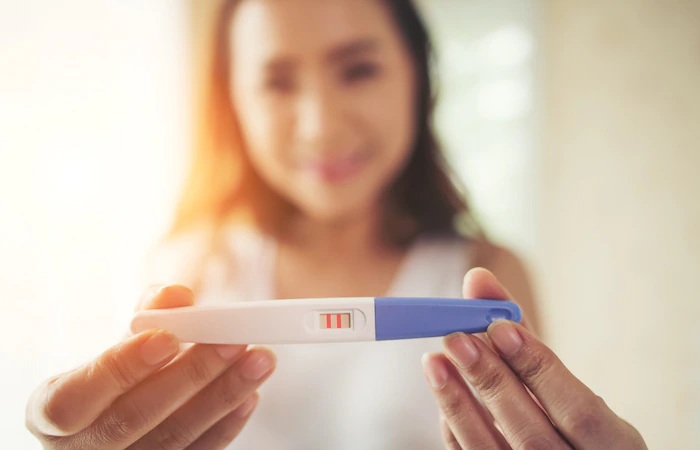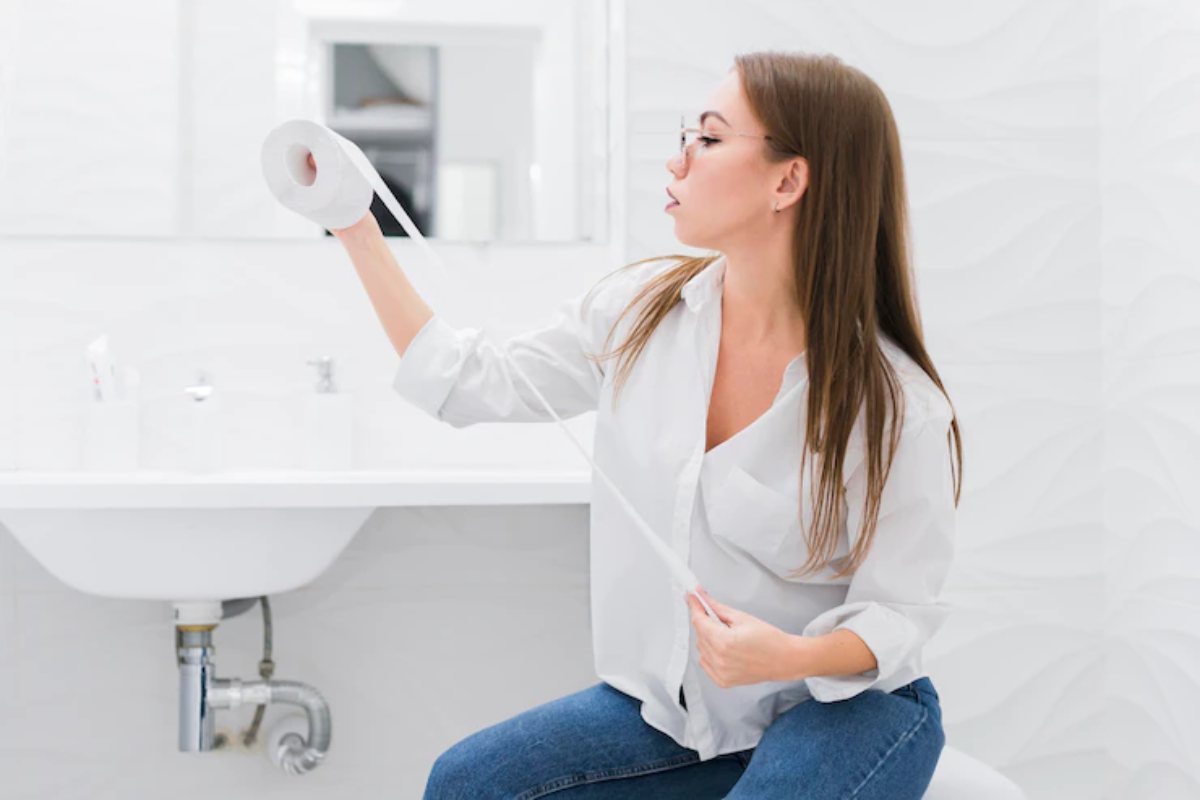When your ovary releases an egg, ovulation takes place. On day 14 of a 28-day menstrual cycle, it takes place. You can monitor ovulation using a calendar, a cervical mucus test, or an ovulation prediction kit, among other techniques.
Table of Contents
Ovulation:
The menstrual cycle stage, known as ovulation, is when your ovary produces an egg (ovum). Once an egg leaves your ovary, it travels via your fallopian tube until sperm fertilizes it. On average, it takes place on day 14 of a 28-day menstrual cycle.
Your menstrual cycle and ovulation
When your hypothalamus releases a gonadotropin-releasing hormone, the ovulation process starts. Your pituitary gland secretes follicle-stimulating hormone as a result of GnRH.
The follicles (tiny sacs of fluid in one of your ovaries that contain an immature egg) in that ovary start to grow between days 6 and 14 of your menstrual cycle. Only one of the developing follicles generates an egg that is fully formed around days 10 to 14 of the cycle. Due to a sudden increase in LH on day 14 of the menstrual cycle, the ovary releases this egg. Ovulation is that. The elevation in progesterone following ovulation aids in preparing your uterus for pregnancy.
Ovulation, pregnancy and conception

Your fallopian tube is the path your egg takes after ovulation. Your fallopian tube is where your egg and sperm unite to become a fertilized egg. If conception happens, the fertilized egg descends to your uterus (your sperm fertilizes your egg). The fertilized egg, which is now a blastocyst, fuses to the lining of your uterus after roughly a week. The term for this is implantation. The endometrium thickens due to the hormones progesterone and oestrogen being released, giving the blastocyst the nutrition it needs to develop into a baby. Hormones inform your body that a baby is growing inside your uterus while cells continue to divide, some turning into the foetus and others becoming the placenta. Additionally, it tells your uterus to maintain its lining, keeping your menstruation from occurring. The first indication of pregnancy is typically not getting your period.
When do women ovulate?
Ovulation takes place roughly 14 days before the start of your subsequent menstrual period in a typical 28-day menstrual cycle. Your cycle distance may be longer or shorter, depending on the precise timing. Using a calendar or a phone app, you might find it useful to keep tabs on your menstrual cycle, and this can assist you in figuring out the best time for ovulation. Regardless of how long their overall cycle is, most people experience their first period 14 to 16 days following ovulation.
How long does the ovulation process last?
Only 12 to 24 hours after ovulation does an egg survive. Your body reabsorbs the sperm if it does not fertilize the egg. Sperm, in contrast to your egg, can remain alive in your body for several days.
How can I tell if I am ovulating?
Identifying ovulation might be challenging. Using various techniques, people can track their menstrual cycle and determine when ovulation occurs. It’s usually advisable to use more than one approach to get the most precise answer because each has disadvantages.
Menstrual cycle
If you have a 28-day cycle, ovulation occurs roughly in the middle of the cycle (day 14). Ovulation, on the other hand, is specific to your menstrual cycle because a “normal” cycle is defined as anything lasting between 21 and 35 days. Record your cycle on paper or with a mobile app for several months. Keep track of any peculiar symptoms. Regardless of cycle length, the majority of people ovulate 14 days before the start of their menstruation.
calendar approach
People who estimate ovulation using a calendar look at six months of menstrual cycles to determine when they are fertile. You need to assess your shortest and longest processes over six months to determine when you might be ovulating. Your shortest cycle is reduced by 18 days, and your longest cycle is reduced by 11 days. These two numbers indicate the most fertile days during your process. Your fertile period would be from day 10 to day 20 of your cycle, for instance, if your cycle lengths are 31 and 18.
cervical mucus
Your cervix produces cervical mucus, which is a vaginal liquid. Throughout your menstrual cycle, your cervical mucus passes through various phases. Before ovulation, your cervical mucus is thick, white, and dry. Your cervical mucus gets clear and slick just before ovulation (like egg whites). Sperm can easily swim up to meet your egg due to its consistency.
Body’s natural temperature
During ovulation, your body temperature rises somewhat (typically about 0.5 to 1 degree). Use a digital thermometer designed exclusively for measuring basal body temperature to take your temperature every morning. This strategy will work if you take your temperature before getting out of bed and before you eat or drink. Keep track of your outcomes for several months and note the day of your cycle when temperature increases occur.
kits for ovulation
Ovulation kits function similarly to at-home pregnancy tests because you can use them in your home by peeing on an indication strip. They work by identifying luteinizing hormone (LH) in your urination, and the hormone that surges before ovulation is LH. You will ovulate if the test is positive (usually within 36 hours).
What are the symptoms of ovulation?
Everyone is unique, and not everyone exhibits ovulation symptoms. The following are the most typical signs in persons who do:
• Soft breasts.
• Bloating.
• Slight stomach or pelvic pain.
• Tiny spots or bleeding.
• Modifications to the hardness and position of your cervix.
• Enhanced sex desire.
• Improved taste, smell, or visual perception.
• Mood swings
• A change in appetite.
How many days during ovulation can you get pregnant?
Although sperm can survive in your uterus for three to five days, compared to your egg’s 24-hour lifespan, this means that between the five days before ovulation and the day after ovulation, you can become pregnant through intercourse. It is preferable to have sperm in your body when ovulating if pregnancy is your objective. When sexual activity occurs on the day of ovulation and one to two days prior, there is a significant chance of conception.
Is it possible to ovulate and miss your period?
Yes. Ovulation can occur without a “period” occurring. In theory, you should experience regular menstruation if you are frequently ovulating. However, it is possible to ovulate but not have a period, as well as to receive your period without actually ovulating.
Can medication aid with ovulation?
There are indeed fertility drugs that can stimulate ovulation. Discuss your symptoms and goals, such as whether you want to get pregnant, with your healthcare professional. They can help you limit the best course of action based on your condition.
statement
During your menstrual cycle, ovulation takes place. Ovulation occurs at different times depending on the individual and even the process. You can’t get pregnant or have regular menstrual cycles if you don’t ovulate. There are numerous techniques you can use to forecast ovulation. Knowing your ovulation date can help you get pregnant or prevent getting pregnant. Countless medical disorders can have an impact on ovulation. If you’re worried you’re not ovulating, speak with your doctor.
Realted search terms to When do women ovulate
ovulation calculator
ovulation
can you get pregnant on your period
14
ovulation symptoms
when do you ovulate
conception
ovulation test
what is ovulation
when is ovulation
when does ovulation occur
ovulating
signs of ovulation
28 days
when is
when do women ovulate
when are you most fertile
how many days after your period do you ovulate
can i get pregnant on my period
how many days
how many days until august 5
how many days until august 12
when did i conceive
how long does ovulation last
how many days until
how many days until august 3
when do you ovulate after period
what does ovulation mean
ovulation cycle
ovulating meaning
can u get pregnant on your period
how many days after your period can you get pregnant
how many days till august 12
how many days until august 14
typically
ovulation calendar
ovulation tracker
when do i ovulate
symptoms of ovulation
signs ovulation is over
how many days after period is ovulation
fertility calculator
when is a woman most fertile
when am i ovulating
when does ovulation start
can you get pregnant right after your period
can you only get pregnant during ovulation
when is the
how many days after ovulation can you get pregnant
when isthe

